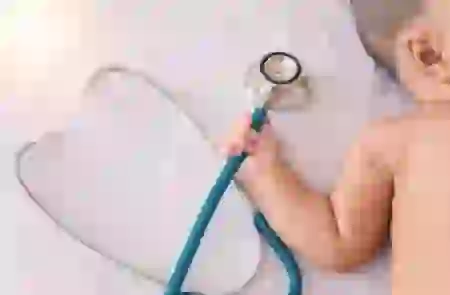Pediatrician Definition
A pediatrician is a doctor who focuses on the health of infants, children, adolescents, and young adults. Child care has been carried out by pediatricians since the child was born. Then, examinations by this doctor can last until the child is 21 years old.
Pediatricians are also able to prevent, detect, and manage physical and behavioral problems. Child development is also part of the pediatrician’s examination.
Diseases Treated by Pediatricians
Pediatricians treat a wide range of illnesses in children. Here are some illnesses that pediatricians often treat, such as:
1. Baby care
Newborn babies will receive intensive examination from a pediatrician. This is useful to ensure the baby’s health condition. If the baby requires certain medical actions, then it can be done immediately.
However, if the baby is in good health, the baby can receive general care.
2. Care for premature babies
Pediatricians will also treat premature babies. Pediatricians will ensure the health condition and appropriate medical actions so that the baby’s health becomes more optimal.
3. Cancer
There are several types of cancer that can be detected in children. Examples include leukemia, nasopharyngeal carcinoma, and neuroblastoma.
4. Genetic disorders
Genetic disorders in children can also be treated by pediatricians. Starting from cystic fibrosis to down syndrome.
5. Disability
Disabilities such as cerebral palsy are one of the diseases that can be treated by pediatricians. There are several symptoms that occur in cerebral palsy sufferers, such as excessive reflex movements, abnormal body posture, and being unable to walk properly.
6. Developmental delays
Children who experience developmental delays require various treatments and therapies so that their health condition can improve.
7. Chronic diseases
Mothers should be aware of various chronic diseases that can occur in children. Starting from diabetes, congenital heart disease, to tooth decay. There’s no harm in knowing the symptoms of diabetes in children.
The pediatrician will provide several types of medication and healthy living advice to reduce the risk or worsening symptoms. However, the doctor can also provide referrals to other specialist doctors that are appropriate to the child’s health condition.
8. Infectious diseases
Diarrhea, measles, meningitis, and hepatitis are various types of infectious diseases that can occur in children. Doctors will provide various treatments and suggestions so that the child’s health condition improves.
9. Asthma
Asthma is a disease that is susceptible to children. This disease can occur due to various causes. Starting from air pollution, weather conditions, to activities carried out by children.
Treatment for asthma in children should be in accordance with the advice of a pediatrician. That way, the child’s health can improve.
10. Allergies
Generally, children are prone to allergies. This condition can occur due to food, air, pollen, and animal hair. In addition to medical treatment, mothers also need to keep their children away from allergens that can trigger this condition.
11. Autism spectrum disorder
This condition is a neurodevelopmental disorder that can affect how children communicate, socialize, and behave. Pediatricians can recommend therapies that are appropriate to the child’s needs.
Medical Procedures That Can Be Handled by a Pediatrician
Pediatricians perform various actions and treatments related to children’s health. There are several actions that pediatricians can handle, such as:
- Physical examination.
- Vaccination of infants and children.
- Treating injuries in children, including broken bones.
- Evaluate children’s physical development.
- Ensuring the emotional and social development of children according to their age.
- Providing medicines that can support children’s health.
- Provides advice on general health.
- Diagnosing and treating certain diseases in children.
- Provide suggestions for examination by other specialist doctors.
- Performing emergency care for children.
When Should You Visit a Pediatrician?
After the baby is born, the baby usually needs to visit the pediatrician for a check-up. The baby should have a check-up after 48-72 hours of leaving the hospital.
During the first year of life, babies should also have regular visits to a pediatrician to ensure their growth and development. Furthermore, mothers can visit a pediatrician when their child experiences health problems or other signs.
There are several signs of health problems that require treatment by a pediatrician, such as:
- Fever that does not improve within a few days.
- Worsening loss of appetite.
- Vomiting and diarrhea that does not improve.
Preparation Before and After Visiting a Pediatrician
There are several things you need to prepare before visiting a pediatrician, such as:
1. Reasons to visit a pediatrician
If the mother has complaints about health or development, make sure the mother has the right reasons. Provide a clear enough explanation so that the doctor can receive the information and make a proper diagnosis.
2. Make an agreement
Mothers can also make an appointment before visiting the hospital so that the child does not have to wait too long in the hospital. Especially if the child is sick or does not allow for a long wait.
3. Make sure the location is comfortable
It is better to find a pediatrician who is not too far from home. Especially if the child is sick, make sure the location is still comfortable enough to be reached with the child.
After having a check-up at the hospital, the mother also needs to do several things, such as:
- Follow the treatment and therapy recommended by the doctor.
- Do not stop taking the medication without your doctor’s advice.
- Conduct independent monitoring of children’s health conditions.

